S&S Stores Londis, Leamington Spa, Warwickshire
Sunder’s 28 years in the industry give him a clear advantage over his rivals. He ensures he stays relevant by maintaining close relationships with the town’s residents and his local MP.
The News Shop, Market Weighton, Yorkshire
No stranger to competition, Lionel had to pull out all the stops when a Tesco superstore opened on his doorstep in 2007. His dedication to customer service means Lionel is still in the game.
Eurospar Broomhill, Sheffield
A Best Large Store finalist at Convenience Retail Awards (CRA), Tim has gone all out to ensure that he tailors his store to his customer base. He meets key customer needs with a dedicated off-licence and strong fresh food area.
Smileys One Stop Shop, Blackpool
Michael owns three stores in the Blackpool area. His Premier outlet on Waterloo Road was a CRA finalist. All three are facing competition from Tesco, but Michael is confident he’s got what it takes to survive.
Sunder: No the multiples can end up as more of a gain than a loss as they attract a lot of people to your area. There’s a new Aldi moving in two miles away and I told our local paper I felt it would work wonders for the area. The only time that problems can arise is if you have a Tesco Express open nearby.
Lionel: Everybody who sells the same products as us is viewed as competition. We’re more focused on the news side of things here, so we’re not competing with fast food restaurants.
Tim: Everyone is competition independent c-stores, the multiples and even outlets such as the café on the street because we have a food-to-go counter and are after the same customers.
Michael: If there’s a similar convenience store in the area then I’d see that as competition, but something like a McDonald’s fast food outlet would be a good thing. It’s no good having one shop on a parade and the rest boarded up. Having a few different outlets in the same location attracts people.
Sunder: We have a Business Watch scheme where all the independents talk to each other about crime in the local area, but beyond that it’s each man for himself.
Lionel: We’re the only newsagent in the area, but we do stay in touch with other independent retailers. There are three butchers in our town, a fruit and veg shop, two flower shops and eight hairdressers! We don’t meet formally, but we see each other most days and we’re all very proud of our independence.
Tim: I do speak to some independents and we co-operate on things that benefit the community, such as the Broomhill Festival where the majority of retailers in the area get involved.
Michael: I talk to people at the cash and carry. If I’ve got advice I’ll pass it on, and vice versa. But obviously if someone on your doorstep became a threat then you’d have to defend yourself.
Sunder: The independent stores nearby aren’t really doing much to compete with me, and their stock levels are too low. With the multiples, it’s all about pricing.
Lionel: Tesco is a one-stop shop people can buy everything under one roof.
Tim: The biggest advantage the mults have is buying power. Plus there’s the fact that they have such large advertising budgets whenever you switch on the TV they’re there.
Michael: Being able to buy in bulk gives the mults a big sourcing advantage.
Sunder: We’re a top-up shop and the likes of Aldi are selling discount goods it’s a very different offering. We still ensure that our milk, bread and sugar are all competitively priced, though, and we distribute 10,000 promotional leaflets every three weeks. We also bond with the local community it’s a big advantage over the big boys.
Lionel: We have a great team who have been with us for many years and they take time to talk to customers. We are also a destination store for magazines and greetings cards. We have 1,500 magazine titles and we dedicate half the shop to greetings cards. They are cheaper than those in Tesco and we offer more choice. We also run three-weekly pricing promotions.
Tim: A lot of the shoppers we get in here are doing top-up shops. We’re heavily reliant on university students in the area and lunchtime buyers, so we’ve really tailored the store to convenience. We also provide good customer service and have worked on a number of community engagement projects. We recently ran a charity weekend in aid of the NSPCC where we raised £800.
Michael: I always try to source locally where possible, which gives the store a point of difference. Customers like to feel that they are putting back into the local area when they shop. Customer service is another advantage that we have, as is the fact that we are a local shop employing local people.
Sunder: Engaging with the community all independents should be doing this.
Lionel: It’s service, service, service a superstore can’t offer that. We know all our customers individually, we deliver shopping for old folk and we offer a home news delivery service.
Tim: Our community events and our customer service are our big strengths. I have a good team behind me.
Michael: The staff I employ. We don’t just take on anyone. I look for people who are chatty and polite. Every time a customer comes into the store we take time to ask a bit about them. Customers really value the personal touch.
Sunder: The National Federation of Retail Newsagents and the Association of Convenience Stores (ACS) are very good. About four years ago the ACS held a summit that was all about getting your MP onside. Once I realised I was missing out, I made a real effort to get to know my MP Chris White. I invite him over for cups of tea and to events such as the local fête, and he lets me know if any new stores are planning to start up. He says he’ll do his best not to let a Tesco Express open nearby.
Lionel: James Lowman has done a brilliant job with the ACS. We finally have an association that speaks effectively on behalf of the independent sector. Also, IGD is recognising the importance of the sector and the reports they do help to form the bigger picture. The more awareness there is of our sector, the better.
Tim: Spar helps us with looking at our range and how it meets our customers’ needs, but I believe the local council could do more to support us.
Michael: Booker has become much stronger over the past few years. A while back I sent them an email and Charles Wilson actually came to see me and another retailer and listen to our suggestions. Based on our feedback he immediately made changes, including making uniforms available to pick up from the local cash and carry (rather than retailers having to wait for them to be delivered), and providing prepacked and pricemarked fruit and veg.
Sunder: Have a good relationship with your local MP and make sure that basic items such as sugar are competitively priced cheaper than the supermarkets if possible. In addition, be sure to have a good spread of promotions as customers will certainly be looking out for them.
Lionel: Provided that everything you do is aimed at your customer and you truly understand what they want, you will always have a good business.
Tim: Involve yourself in the community as much as you can that way you can build a connection with the locals.
Michael: You need to keep investing in and developing your store. Customers want to see the money they put into the store re-invested.
How do the multiples’ advantages affect your business?
Sunder: The mults run silly offers that we can’t compete with such as buy two get one free. Lionel: When the Tesco opened in 2007 it had a big impact on local businesses. There was a Costcutter located 30 yards away from the superstore that didn’t survive. The Tesco took 30% of our business and it’s taken until now to get it back to where it was. Tim: Customers are now a lot more price- conscious and the mults can really push discount pricing, which makes it harder for us to compete. Michael: It’s disappointing as I can’t sell certain products and people can buy them from Tesco. For example, I wanted to sell products from a firm called Mash Direct, and they did supply me for a while, but then they stated that the deliveries weren’t financially feasible for them. They wanted to deliver pallets rather than boxes of six!
What competition are you currently facing and how close is it to your store?
Sunder: The mults near me are all in one area about two miles away. There’s a Sainsbury’s, Lidl, an Aldi on its way, and maybe a Morrisons, too. I say let them get on with it and fight it out. As long as they stay there, I’m happy. The worry would be if they came onto our patch. In addition to the mults, there are seven independents within a half-mile radius of me. Lionel: Even though our store is in a small village of just 4,500 people, there is a 30,000sq ft Tesco located 150 yards away from us. In the village there’s a Co-op and a Netto, which has just been bought by Asda. This could work to our advantage in that the store’s prices could go up, as often the deep discounters such as Netto are often cheaper than Asda, Tesco and so on. However, Asda will undoubtedly offer a much wider range of products. Tim: The nearest big multiple to our store is a Sainsbury’s half a mile away, and there’s a Co-op of a similar size next to that. There’s a Tesco Express half a mile away in the other direction, and a Waitrose. Michael: My Watson Road and Waterloo Road stores are half a mile apart and there is a Tesco Express between them. With my Bispham store there was a Thorougoods two doors away and the owner warned that he would close me down, but he ended up closing himself. Now there’s a Tesco due to open about a mile away.





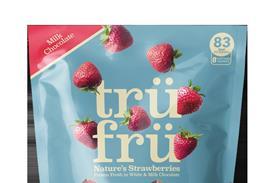
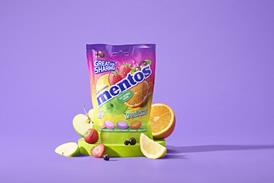








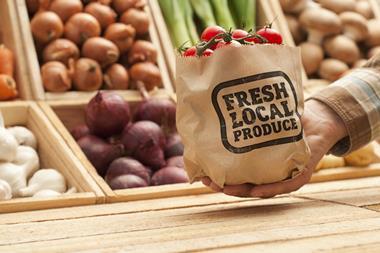
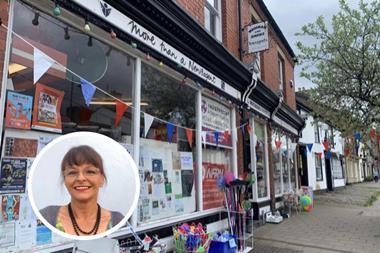
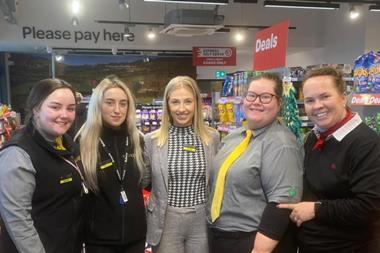
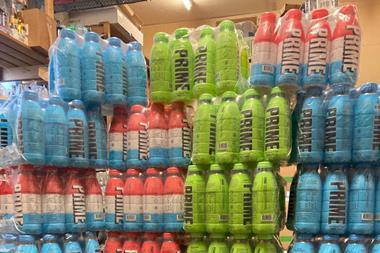

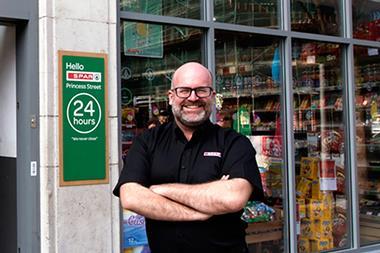
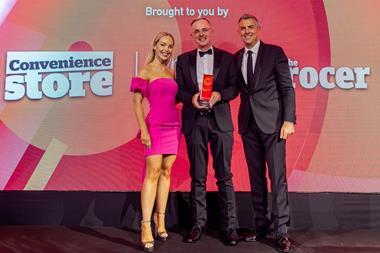
![C-Store_Champions_logo-CHOSEN[1] 2023](https://d2dyh47stel7w4.cloudfront.net/Pictures/380x253/6/5/7/301657_cstore_champions_logochosen12023_817064.jpg)

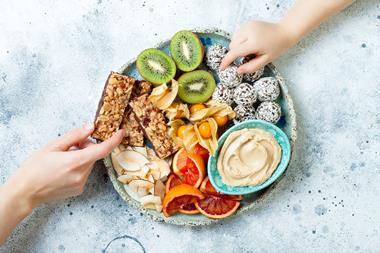


No comments yet